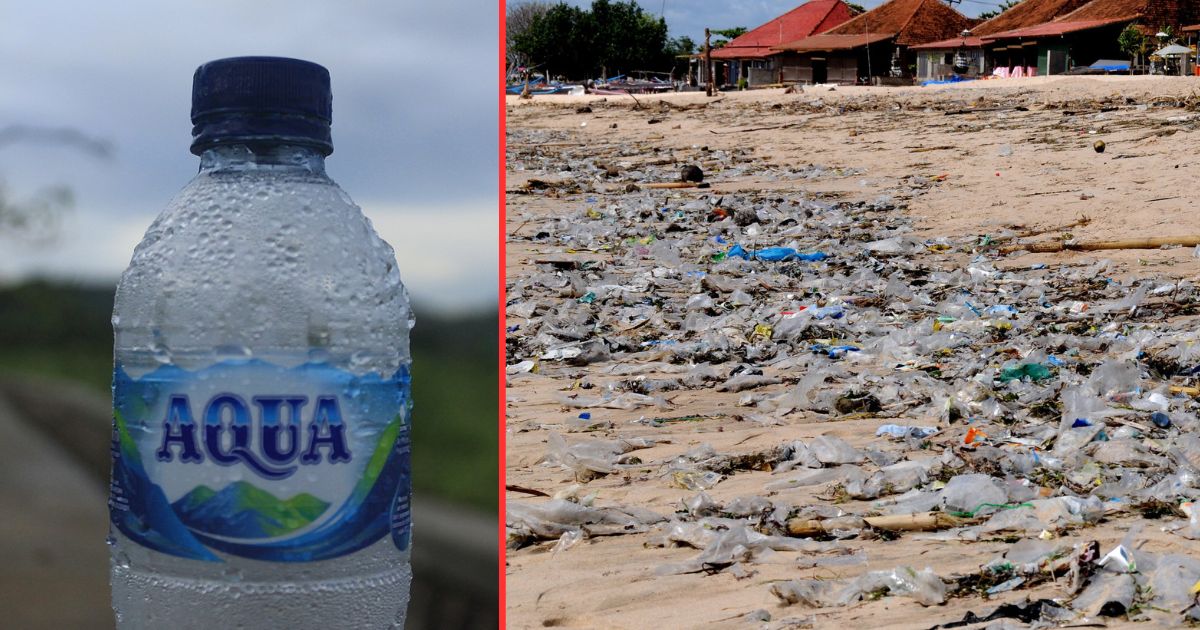Perhaps the greatest blight to Bali’s picture-perfect tropical beauty is the prolific amounts of plastic waste found on its beaches and in its waters. The plastic problem is a growing one and, despite the best efforts of many dedicated Bali beach cleaners both professional and volunteer (including even Ultraman!) it doesn’t seem like the problem will be solved anytime soon.
One reason is the staggering amount of single-use plastic products that continue to be sold in and around Bali, produced by massive companies that have little incentive to reduce their prodigious plastic output.
An environmental group that is dedicated to cleaning up rivers in Bali and beyond, Sungai Watch, takes on the tedious work of not just getting rid of all of that litter but also sorting and cataloging it to learn exactly which companies are contributing the most to Bali’s plastic problems. And according to their analysis, the French multinational corporation Danone is the biggest contributor to plastic pollution in Bali because of its single-use products.
In the NGO’s recently released 2022 impact report, after auditing a sample of 235,218 pieces of plastic waste in Bali and East Java, they found that Danone products made up a full 10 percent.
Danone owns several of Indonesia’s most popular bottled water brands including Aqua and Vit. Their audit found that Aqua single-use cups made up 63 percent of all the Danone products they cataloged.

Second among the worst offending plastic product producers in their report is Orang Tua, which produced 7 percent of the audited waste (of which 95 percent was Teh Gelas cups). The third company is Wings, which produces products including Ale-Ale Juice and Mie Sedaap instant noodles.
Danone products also topped the list of companies contributing to the island’s plastic waste in their impact report from last year.
Sungai Watch says its main objective “is to stop plastic from going into the ocean and find solutions to mitigate plastic pollution from entering our rivers in the first place”. The reason they sort and audit the specific brands of plastic waste they collect is because “they believe that it is critical to collect as much data on plastic pollution as possible to gain a thorough understanding of where the waste is coming from and what practices and industries are responsible for it.”
“We hope that these findings can inspire both the companies and the public to take action in addressing plastic pollution,” they write in the report.
In 2021, Aqua pledged to make all of its plastic products recyclable or biodegradable by 2025. The company has sponsored some beach cleanup efforts in Bali in the past.
Sungai Watch was started in 2020. According to its impact report, the NGO was able to remove 535,246 kilograms of non-organic waste from polluting rivers and oceans around Bali and East Java last year. They have installed trash barriers around dozens of rivers to help prevent the spread of plastic waste into the ocean.
There’s been a significant increase in the amount of plastic that washes up on Bali’s shores over the last decade. Experts say the beaches in Kuta and Legian are inundated by up to 60 tons of plastic trash each day.





Reader Interactions